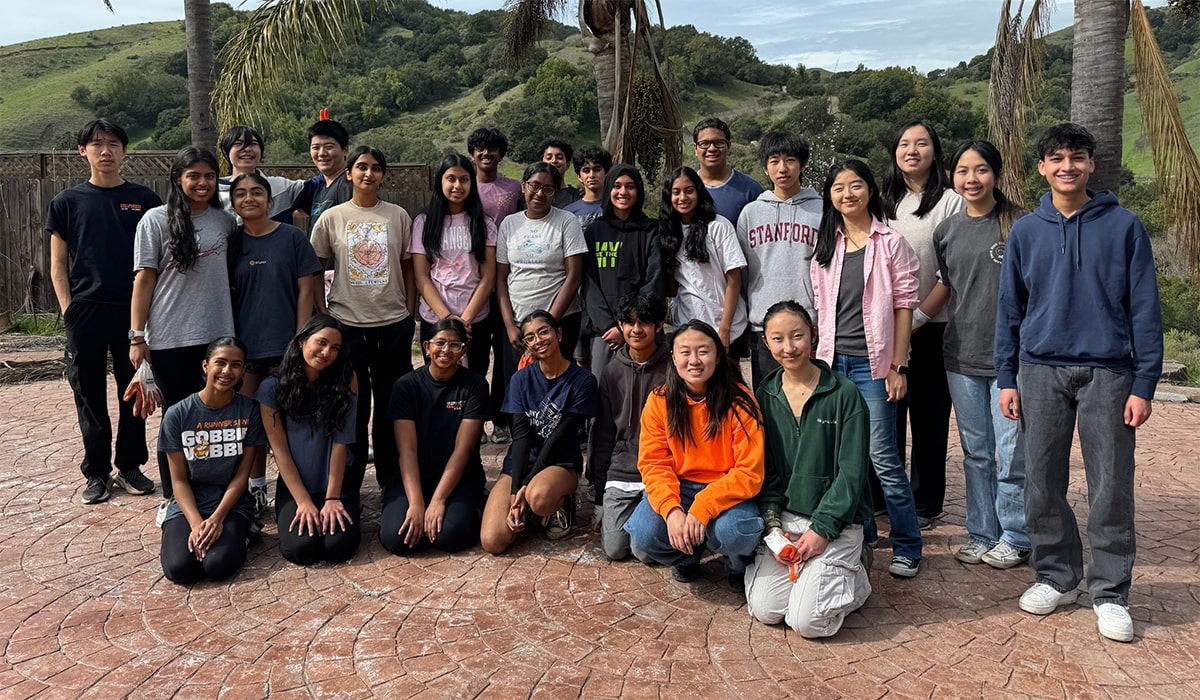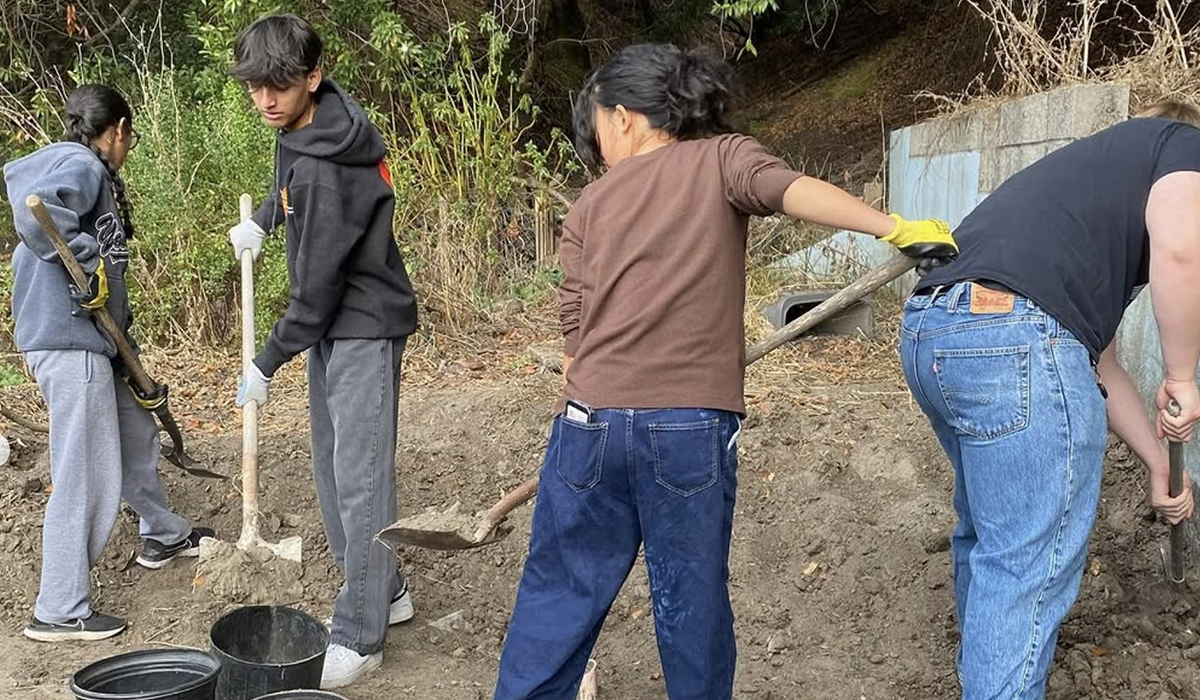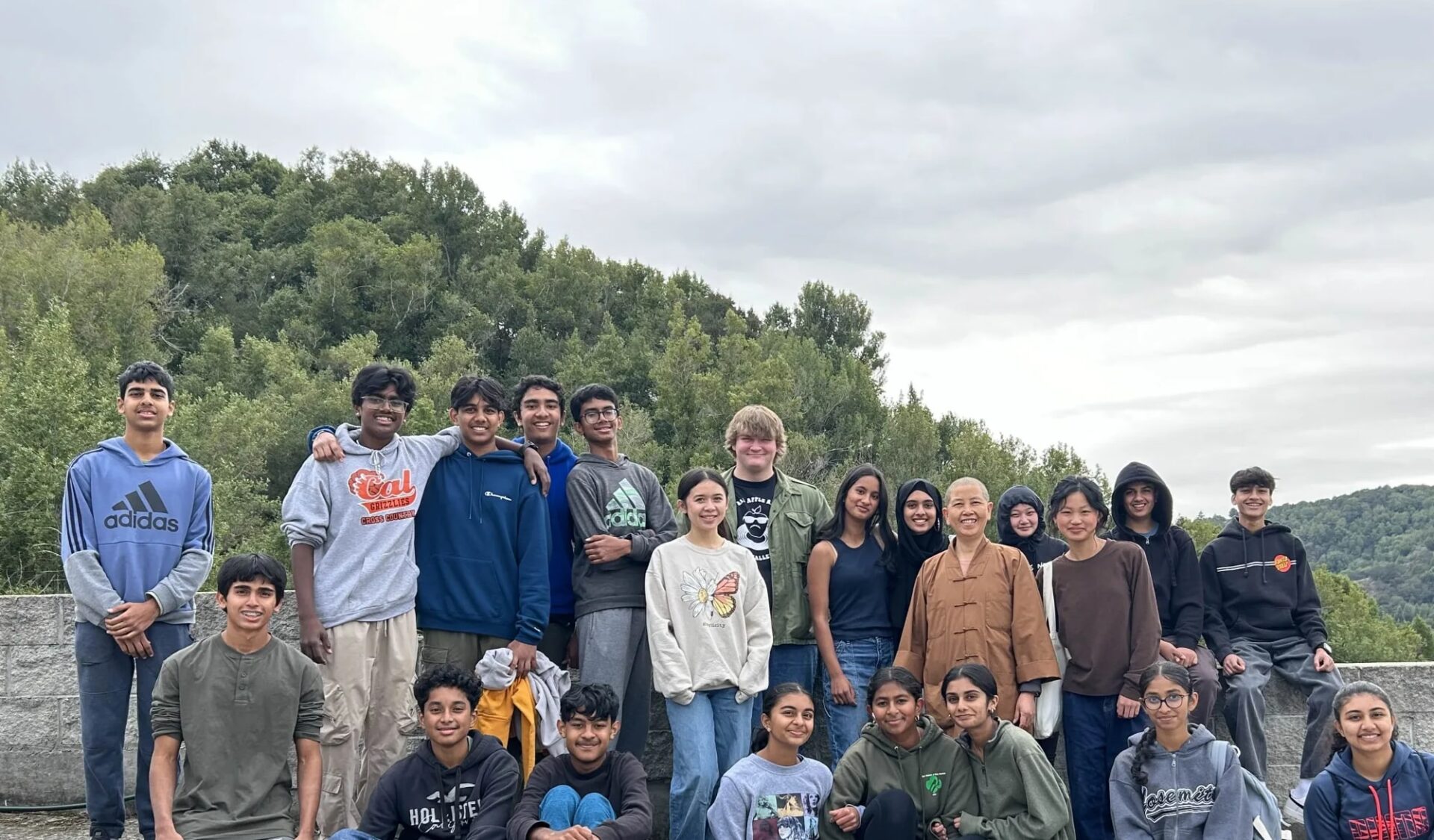Educational Equity in East Bay Area and Beyond

Meet Daily Point of Light Award honoree Arjun Patel. Read his story, and nominate an outstanding volunteer or family as a Daily Point of Light.
In the heart of the East Bay Area, Arjun Patel, lead and president of the California High School Tap Initiative chapter, isn’t just a high schooler—he’s a dynamic community leader dedicated to tearing down barriers to education. Since 2023, Arjun has been channeling the energy of over 250 members and a team of four officers into meaningful change. Through monthly volunteer trips, he coordinates logistics, manages sign-ups and oversees hands-on renovation activities for local institutional partners. His dedicated efforts have included everything from clearing grass for future building sites to moving and distributing much-needed donated classroom furniture. This has resulted in the chapter organizing over 1,000 volunteer hours, creating improvements in learning environments for local students.
The scope of Arjun’s impact is impressive, reaching over 3,000 students through the chapter’s various initiatives. As the executive director of Tap notes, his leadership extends beyond local boundaries. Arjun facilitates crucial discussions with international education organizations, actively encouraging members to confront the vast and varying circumstances of global academic life. These conversations aren’t just academic exercises; they are dialogues that illuminate the academic inequalities woven into educational systems worldwide. By exposing his fellow students in the San Ramon community to these global realities, Arjun is cultivating a generation of informed, globally conscious advocates.
Arjun devotes approximately 12 to 15 hours per month to his role, and the impact of those hours is exponential. He exemplifies the importance of service by not only carrying out tasks but by actively acquiring and sharing the skills and findings he gains, offering this knowledge to the wider community. He and the California High School Tap Initiative chapter are building more than just improved physical spaces; they are fostering a culture of action, empathy and hope for the global mission of achieving educational equity.
Tell us about your volunteer role.
I serve as the lead and president for the California High School chapter of The Tap Initiative (Tap), a 501(c)(3) education nonprofit focused on addressing global educational inequity. Tap connects student volunteers with partner institutions, locally and internationally, to assist with infrastructural and academic needs. As chapter lead, I coordinate our 250+ members, organize local volunteer trips and work closely with the Tap Directors’ Team to identify areas where our efforts can have the greatest impact.
Our chapter has hosted service trips to institutions like the Fa Yun Chan Academic Center and the Tri-Valley Native American Center, where we’ve renovated classrooms, organized libraries and supported cultural education programs. My role also includes overseeing communications between chapters and managing volunteer outreach, ensuring our projects remain sustainable and student-driven.

Why is this issue so important to you?
To me, education is the foundation of every other kind of progress. Yet, so many students around the world lack access to safe, functional learning environments or even basic supplies. Seeing that imbalance makes it impossible to stand still. This issue matters to me because it’s not only about academics but also empathy, shared humanity and understanding how deeply interconnected our futures are. Every cultural institution we assist represents students whose potential deserves the same opportunities I’ve been fortunate to have.
What inspired you to get started with this initiative?
I first joined Tap because I was drawn to the idea of hands-on, student-led impact. It’s one thing to care about educational inequality in theory, but Tap offered a way to contribute directly: to roll up my sleeves and help build something that matters. After my first volunteer trip, seeing how grateful and motivated our partner institutions were, I knew this was something I wanted to commit to long-term.
Tap also inspired me because it’s entirely youth-driven. The fact that high school students across chapters can organize international partnerships and raise funds for institutions in Cambodia or Nepal shows what young people can accomplish when they’re given the chance to lead.
What are your long-term plans or goals with the organization?
My goal is to help Tap continue expanding both its reach and its depth of impact. In the short term, that means growing our Cal High chapter and increasing participation on monthly service trips. In the long term, I’d like to see Tap develop even more international partnerships, helping more communities, like those from the Cambodian Community Dream Organization and Vajrayogini Meditation Centre, access the resources they need to thrive.
Beyond growth, I’m focused on sustainability, ensuring that each Tap chapter can function independently while still collaborating globally. I hope that years from now, Tap remains a model for how student-led initiatives can create real, lasting change.
What’s the most rewarding part of your work?
Witnessing the direct impact of our efforts: walking through a newly renovated classroom, seeing pictures of the children using the books we helped organize in Cambodia or hearing that a water filter we funded is providing clean water for students in Nepal. Those moments make planning every Tap Trip and fundraiser worth it.
But there’s also a personal reward: the friendships and purpose cultivated among volunteers. Watching students from different schools work side-by-side, all driven by the same mission, reminds me that empathy isn’t limited by borders. It’s incredibly fulfilling to know that our work not only helps others but also strengthens our own sense of connection.

What have you learned through your experiences volunteering?
I’ve learned that meaningful change requires patience, persistence and collaboration. Projects like clearing land for new classrooms or organizing educational materials may seem small individually, but collectively, they create real transformation. I’ve also learned to value cultural humility. Every institution we work with has its own story, and listening to those stories is just as important as helping out.
Leading such a large chapter has also taught me about responsibility and communication. Coordinating hundreds of volunteers and aligning with Tap’s international goals has shown me how powerful organized youth action can be when everyone shares the same vision.
Why is it important for others to get involved with causes they care about?
Getting involved is the most powerful way to understand the world beyond yourself. When you volunteer, you begin to see how interconnected communities are: how an act of service in one place can ripple outward. Causes like educational equity need sustained passion, and that can only happen when people take that first step to get involved. Volunteering also transforms you. It teaches empathy and perspective in ways no classroom can. The world improves when people decide to act on the issues that move them.
Any advice for people who want to start volunteering?
Start with something that feels meaningful to you, even if it’s small. You don’t need to travel halfway across the world to make a difference. Local impact is just as powerful. Look for organizations like Tap that give you the chance to get hands-on and connect directly with the communities you’re helping. And don’t be afraid to step up. Some of the best initiatives come from students who simply saw a need and decided to address it, like how Tiantian Yang saw an academic disparity in her community and founded the Tap Initiative. Volunteering isn’t about having all the answers but about showing up and finding purpose through action.
Do you want to make a difference in your community like Arjun? Find local volunteer opportunities.